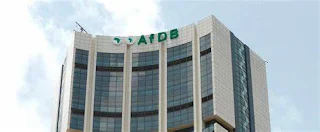Media's Role in Combating Corruption in the Education Sector's Procurement Process
By Daily News Reporter
Corruption in the procurement process within the education
sector poses a significant threat to economic stability and the effective
delivery of public services. The media plays a critical role in uncovering and
addressing corruption, thereby safeguarding the economy and ensuring that
public funds are used efficiently and transparently.
As a watchdog, the media is instrumental in exposing corrupt
practices in procurement, such as bribery, bid-rigging, and the embezzlement of
funds. By shedding light on these issues, the media not only deters corruption
but also pressures authorities to take corrective action. This vigilance is
crucial in a sector as vital as education, where financial mismanagement can
have long-lasting effects on the nation’s future.
Chilufya Sampa, an expert in public procurement, explains
that procurement constitutes a considerable percentage of any country’s GDP.
"It is vitally important that the entire process, from start to finish, is
transparent and accountable to ensure that the public gets value for
money," Sampa emphasized.
"Effective public procurement determines the quality of
public infrastructure and services, impacting the range and depth of what a
state can provide to its citizens. Money wasted due to collusion or corruption
ultimately results in fewer public funds," he added.
Public procurement malpractices include overpricing
contracts, non-delivery of obligations, failure to follow procedures,
non-disclosure of conflicts of interest, facilitation payments, and the quick processing
of tenders and payments. While these actions are not necessarily violations,
they become problematic without reasonable justification.
Mr. Sampa further noted that corruption, gross negligence,
political influence, and failure to adhere to procedures continue to plague
public procurement processes.
Jack Phiri, a resident of Kalingalinga Compound in Lusaka,
emphasized the detrimental impact of corruption on the economy and the
importance of media oversight. "Without the media, the public would remain
unaware of how school funds are misused. Corruption in procurement affects the
quality of education and drains resources that could be better spent on
improving our schools," Phiri stated.
The media also plays a vital role in informing the public
about procurement processes, helping to ensure they are transparent and fair.
By keeping the public informed, the media prevents the secrecy that allows
corruption to thrive. This transparency is essential for maintaining trust in
public institutions and ensuring that taxpayer money is used for its intended
purpose.
Veteran Media Consultant Kellys Kaunda highlighted the
economic consequences of corruption in the education sector, noting that it
undermines development and erodes public trust.
"Corruption in procurement leads to inflated costs,
substandard materials, and delayed projects, all of which have a negative
impact on the economy. Through investigative journalism, the media can expose
these practices and advocate for reforms that enhance accountability,"
Kaunda remarked during a media capacity-building workshop on public procurement
in Zambia organized by CUTS International Lusaka.
CUTS is implementing a project titled ‘Enhanced Oversight
and Monitoring of Public Procurement in Zambia’s Education Sector,’ which aims
to stimulate broad discussions toward adopting a transparent, fair, and
competitive public procurement system. The project focuses on legislative and
regulatory frameworks such as the Public Procurement Act of 2020, the
Anti-Corruption Act of 2012, the Public Finance Management Act of 2018, and the
Companies Act of 2017.
Allan Chanda Chitwamali, Programme Officer at CUTS
International Lusaka, stressed that media scrutiny is essential for holding
government institutions accountable. "The media’s role in following up on
procurement outcomes—such as the quality of materials delivered and the
implementation of educational projects—ensures that public funds are used
effectively. When corruption is exposed, it forces a reevaluation of policies
and practices, ultimately leading to better economic outcomes," Chitwamali
added.
Chitwamali also urged the media to continue investigating
and reporting on allegations of corruption within the procurement process. Such
efforts are crucial for promoting accountability and ensuring that those
responsible for economic mismanagement are held accountable.
Overall, the media is a powerful tool in the fight against
corruption, playing a vital role in protecting the economy and ensuring that
the education sector’s procurement processes are conducted with integrity and
in the best interest of the public.




.jfif)









